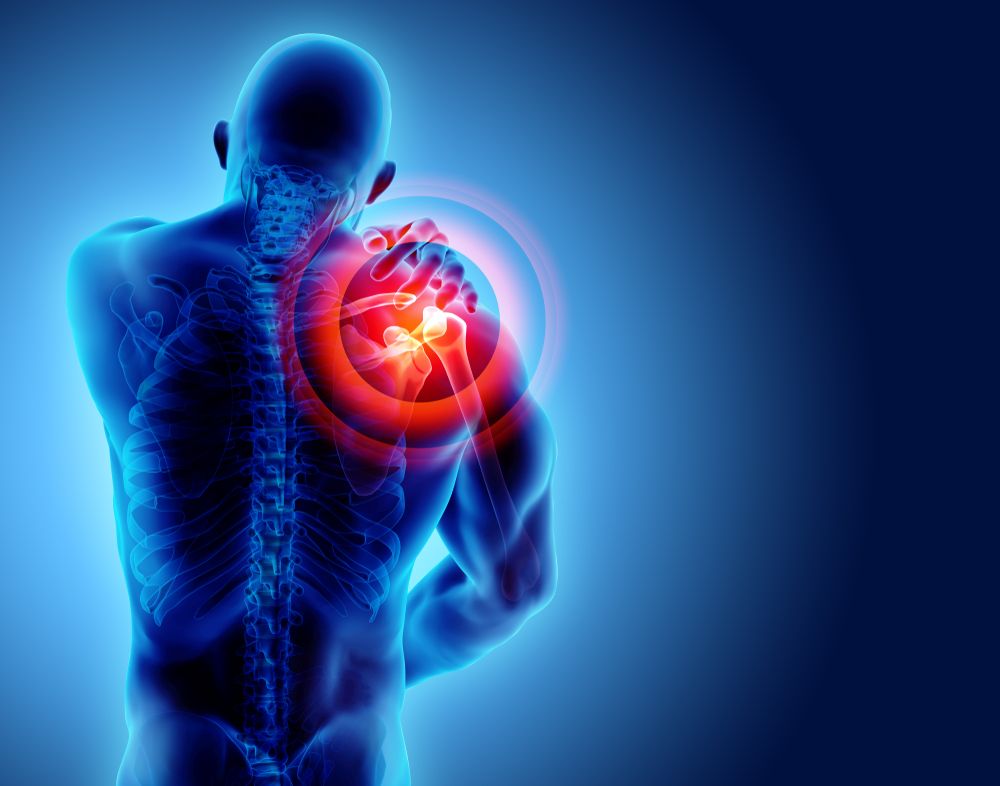Shoulder pain can be a significant barrier to everyday activities, affecting everything from lifting and carrying to simply reaching overhead. Understanding the common causes of shoulder problems and the solutions available can help restore function and improve quality of life. At Spine, Neck, & Back Specialists, Dr. Jay Reidler provides specialized care for shoulder conditions, helping patients in Bloomfield, Englewood, Kearny, Union City, and Teaneck, NJ, find relief. We’re also now accepting Cigna PPO and many other insurance plans—please contact us for more details.
Anatomy of the Shoulder: A Complex Joint
The shoulder is one of the most flexible and mobile joints in the body, allowing for a wide range of movements. However, this flexibility also makes it vulnerable to injury. The shoulder is a ball-and-socket joint, consisting of three main bones:
- Humerus: The upper arm bone.
- Scapula: The shoulder blade.
- Clavicle: The collarbone.
These bones are supported by a network of muscles, tendons, and ligaments that provide stability and control movement. The most important structures in the shoulder include:
- Rotator Cuff: A group of four muscles and tendons that stabilize the shoulder and allow it to rotate.
- Labrum: A ring of cartilage that deepens the shoulder socket, keeping the joint stable.
- Bursa: Fluid-filled sacs that reduce friction between the bones, tendons, and muscles.
Common Shoulder Problems
Shoulder pain can result from a variety of injuries and conditions. Here are some of the most frequently encountered shoulder problems:
1. Rotator Cuff Tears
The rotator cuff is responsible for stabilizing the shoulder joint. Overuse, injury, or age-related wear and tear can lead to a tear in one of the rotator cuff tendons. This can cause pain, weakness, and difficulty lifting the arm.
Treatment: Mild tears may be treated with physical therapy, anti-inflammatory medications, and rest. Severe tears often require surgical repair, which may involve reattaching the torn tendon to the bone.
2. Shoulder Impingement
Shoulder impingement occurs when the tendons of the rotator cuff become compressed between the bones, leading to inflammation and pain. It is commonly caused by repetitive overhead movements, such as those seen in athletes or manual laborers.
Treatment: Non-surgical options include rest, ice, physical therapy, and anti-inflammatory medications. In some cases, corticosteroid injections may be used to reduce inflammation. For persistent cases, arthroscopic surgery may be necessary to remove bone spurs or damaged tissue.
3. Frozen Shoulder (Adhesive Capsulitis)
Frozen shoulder is a condition characterized by stiffness and pain in the shoulder joint, often developing gradually and worsening over time. It is typically caused by inflammation of the joint capsule and is more common in individuals over 40.
Treatment: Physical therapy is the primary treatment, focusing on gentle stretching exercises to restore mobility. Anti-inflammatory medications and corticosteroid injections may also help reduce pain. In severe cases, surgery to release the tight joint capsule may be required.
4. Shoulder Dislocation
A shoulder dislocation occurs when the head of the humerus is forced out of the shoulder socket, often due to a fall or direct impact. This injury can cause intense pain, swelling, and visible deformity.
Treatment: A dislocated shoulder needs to be manually reduced (put back into place) by a healthcare professional. Afterward, rest, physical therapy, and a shoulder brace may be recommended to support healing. Recurrent dislocations may require surgical intervention to stabilize the joint.
Chronic Shoulder Conditions
In addition to acute injuries, chronic conditions can develop over time due to wear and tear, repetitive use, or underlying health issues. Here are a few common chronic shoulder problems:
1. Osteoarthritis
Osteoarthritis of the shoulder is a degenerative condition where the cartilage cushioning the joint wears away, causing pain, stiffness, and reduced range of motion. It’s more common in older adults and those with a history of shoulder injuries.
Treatment: Non-surgical management includes anti-inflammatory medications, physical therapy, and joint injections. For severe cases, shoulder replacement surgery may be necessary to restore function and alleviate pain.
2. Tendinitis
Tendinitis is the inflammation of the tendons in the shoulder, often resulting from overuse or repetitive movements. It commonly affects the rotator cuff tendons and can cause pain, swelling, and tenderness.
Treatment: Rest, ice, and anti-inflammatory medications are initial treatments. Physical therapy can help strengthen the shoulder and prevent future flare-ups. In severe cases, surgical removal of inflamed tissue may be considered.
Diagnosing Shoulder Problems
Accurate diagnosis is crucial for effective treatment. At Spine, Neck, & Back Specialists, Dr. Reidler utilizes various diagnostic tools to assess shoulder conditions:
- Physical Examination: Checking for swelling, pain, and range of motion limitations.
- Imaging Tests: X-rays, ultrasound, or MRI scans provide detailed images of the shoulder’s internal structures.
- Arthroscopy: In some cases, a minimally invasive arthroscopy may be performed to examine the joint and diagnose complex shoulder issues.
Treatment Options for Shoulder Conditions
Treatment depends on the specific problem and its severity. Common options include:
Non-Surgical Treatments
Non-surgical treatments are often the first line of defense for mild to moderate shoulder problems. These include:
- Physical Therapy: Tailored exercises to improve strength, flexibility, and stability in the shoulder joint.
- Medications: Anti-inflammatory drugs and pain relievers to manage discomfort.
- Injections: Corticosteroid injections may provide temporary relief from pain and inflammation.
Surgical Treatments
For severe or persistent shoulder issues, surgery may be necessary. Some of the surgical options available are:
- Arthroscopic Surgery: A minimally invasive procedure to remove damaged tissue, repair torn tendons, or treat impingement.
- Shoulder Replacement: In cases of severe arthritis, a shoulder replacement involves replacing the damaged joint with an artificial implant to restore function.
- Rotator Cuff Repair: Surgical reattachment of torn tendons for patients with severe rotator cuff tears.
Recovery and Rehabilitation
Recovery from shoulder injuries or surgery involves a structured rehabilitation plan to restore mobility and strength. Here’s what the recovery phase typically includes:
- Rest and Pain Management: Resting the shoulder, using ice, and taking prescribed pain medications to manage discomfort.
- Physical Therapy: A gradual increase in exercises to improve strength, flexibility, and stability.
- Monitoring Progress: Regular follow-up appointments with Dr. Reidler to assess recovery and make necessary adjustments to the treatment plan.
Recovery times can vary from a few weeks for mild injuries to several months for complex surgeries.
Reclaiming Shoulder Function and Comfort
Shoulder problems can significantly impact daily life, but effective treatment can restore function and alleviate pain. At Spine, Neck, & Back Specialists, Dr. Jay Reidler and our team are dedicated to providing personalized care for shoulder injuries and conditions. Whether you’re dealing with a recent injury or a chronic problem, we have the expertise to help you find relief. Serving patients in Bloomfield, Englewood, Kearny, Union City, and Teaneck, NJ, we are committed to your recovery journey. Now accepting Cigna PPO and a range of other insurance plans, we make shoulder care accessible and comprehensive. Contact us today to schedule a consultation and learn about your treatment options.
Sources:
- Kuhn, J. E., & Dunn, W. R. (2010). Shoulder Pain and Disorders: A Comprehensive Review. Journal of Bone and Joint Surgery.
- Koo, S. S., & Burkhart, S. S. (2004). The Treatment of Rotator Cuff Injuries: Current Strategies. American Journal of Sports Medicine.
- Flatow, E. L., & Soslowsky, L. J. (1997). Biomechanics of Shoulder Tendinitis and Impingement. Clinical Orthopaedics and Related Research.




